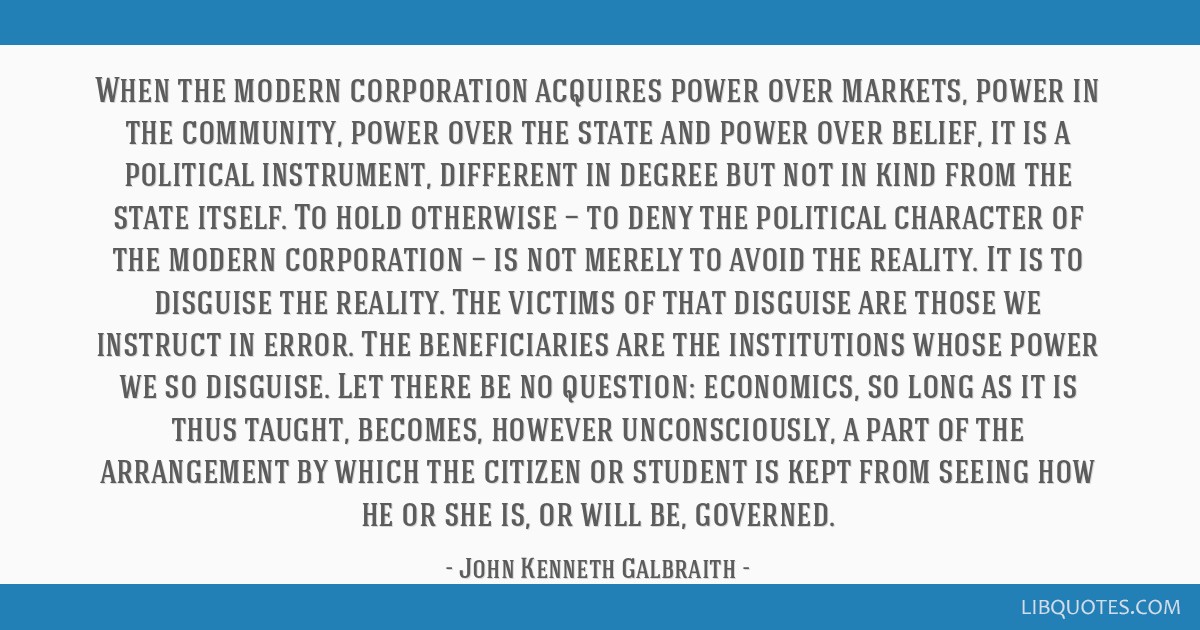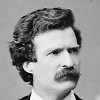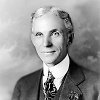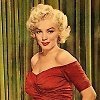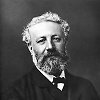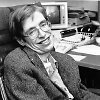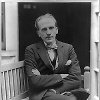When the modern corporation acquires power over markets, power in the community, power over the state and power over belief, it is a political instrument, different in degree but not in kind from the state itself. To hold otherwise — to deny the political character of the modern corporation — is not merely to avoid the reality. It is to disguise the reality. The victims of that disguise are those we instruct in error. The beneficiaries are the institutions whose power we so disguise. Let there be no question: economics, so long as it is thus taught, becomes, however unconsciously, a part of the arrangement by which the citizen or student is kept from seeing how he or she is, or will be, governed.
Power and the Useful Economist (1973)
